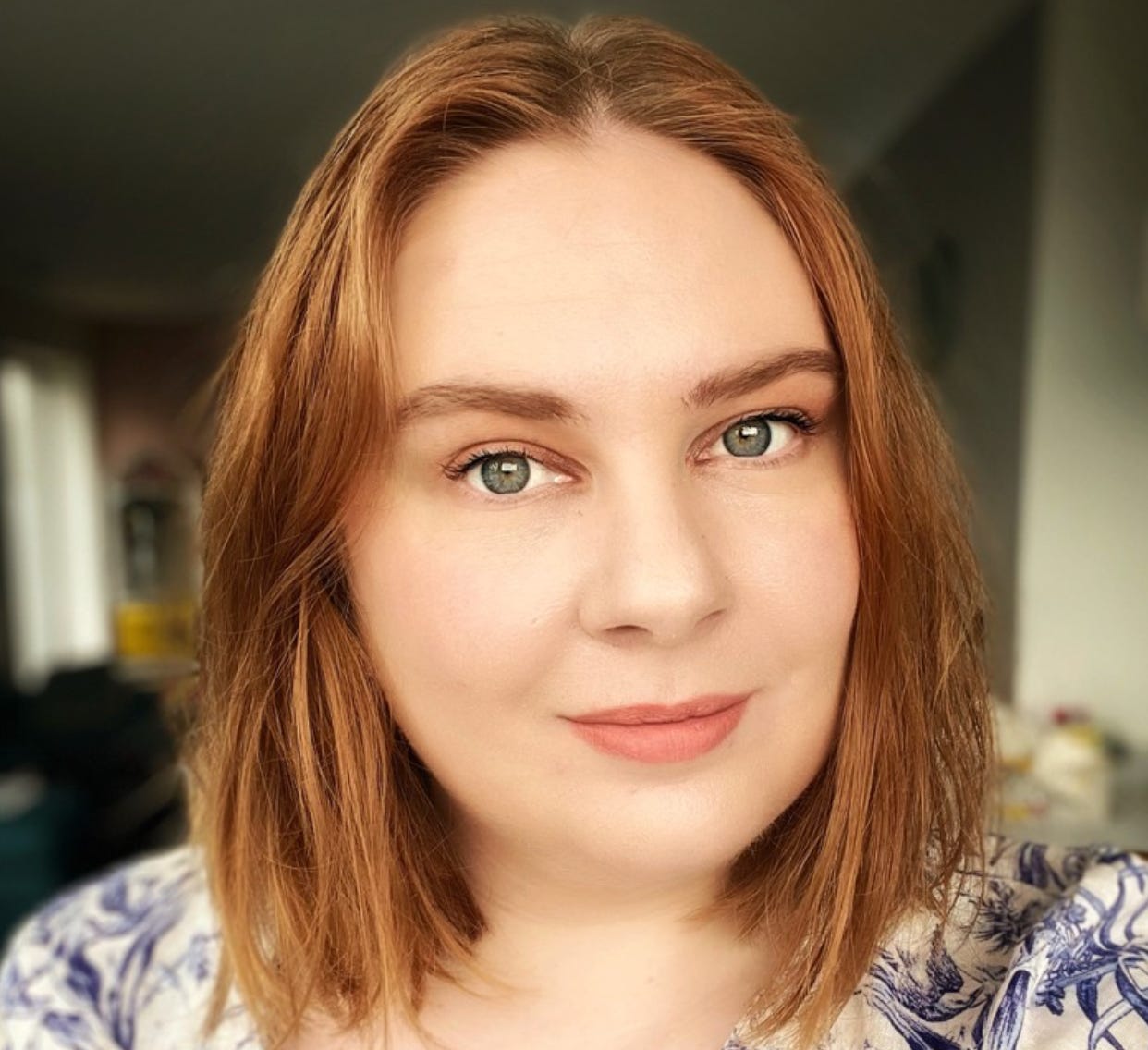🫂 Community Story: Lauren
Lauren (34) has autism and fibromyalgia, which reinforce each other and make her functioning more difficult.
“Fibromyalgia is caused by an oversensitive nervous system, which makes everything come in extra hard, both physically and mentally. It feels like driving while all the lights on your dashboard are flashing. Speaking of driving — it's not an easy task for me, and I deliberately avoid appointments that would require me to drive too far. Talking on the phone is another challenge. Without facial expressions and body language, I find it harder to interpret language and try so hard to listen and understand that the message doesn't get through or I stumble over my words. Cooking isn't always easy either. At home, I try to provide as many backup plans as possible. For example, during good times, I make a large bowl of spaghetti sauce so that I can still provide fresh food on bad days. I've also arranged the house so that housework can be done intuitively, easily, and quickly. In that respect, my limitation may even be a bit of an asset! Many people don't understand the impact that autism and fibromyalgia have on my life. Sometimes I wish they could take a look behind the scenes. Because I'm always afraid that others will find me lazy and complacent. Or worse, that the disease is all in my head. The biggest challenge I face is on a professional level. Working is almost impossible during periods of intense pain, fatigue, and overstimulation. As a "but you don't look autistic at all!" person with autism, I am often overestimated. Adjustments that are essential for many people with autism or fibromyalgia are actually nice for everyone. And that makes employers less eager to provide those adjustments. So it's not surprising that only an estimated 15-20% of all adults with autism are working. Fibromyalgia is a diagnosis of exclusion, and there is little to see in blood, scans, or tests. I have never been on disability myself, but the control doctors are said to be terrible and suspicious. There is still so little known about the disease, and that leads to a lot of self-doubt. Who knows, maybe in the future they will find a magic pill to take away all the complaints. But until then, I will continue to make the best of it and hope that people gain more understanding of the impact that autism and fibromyalgia have on my life."


